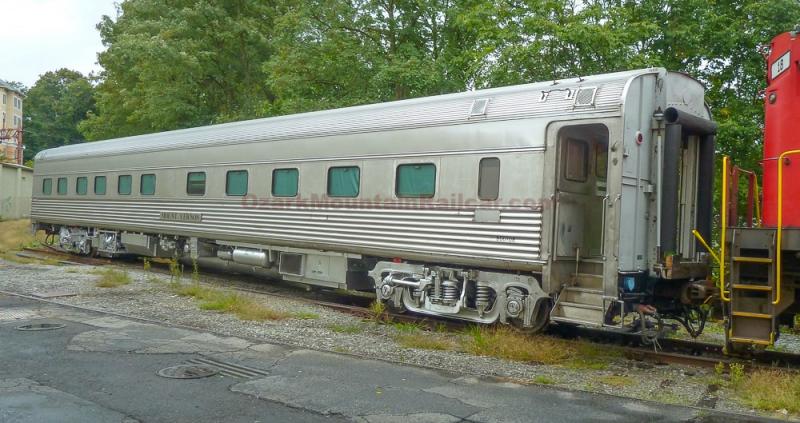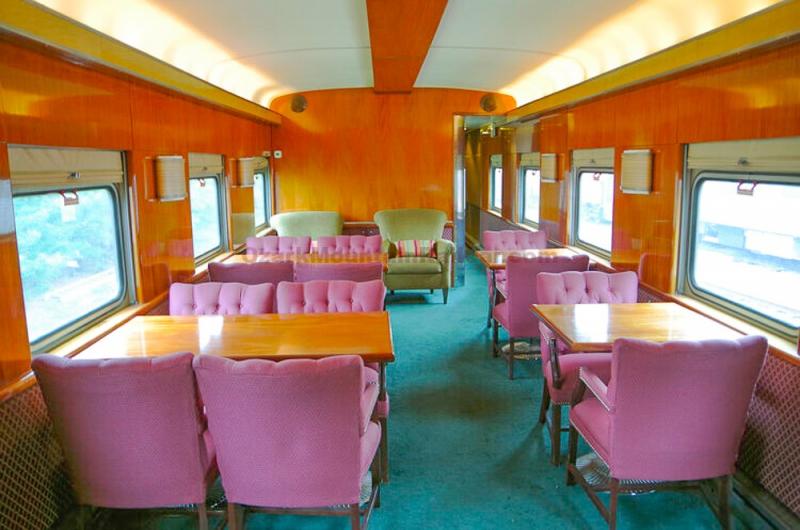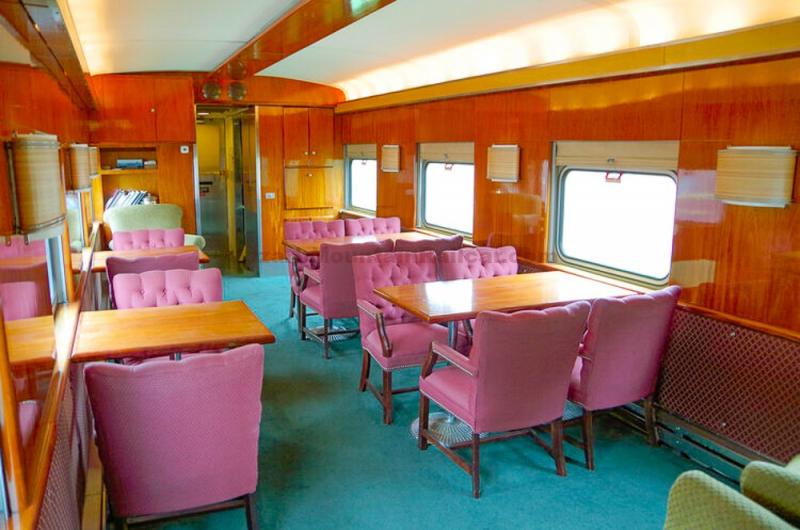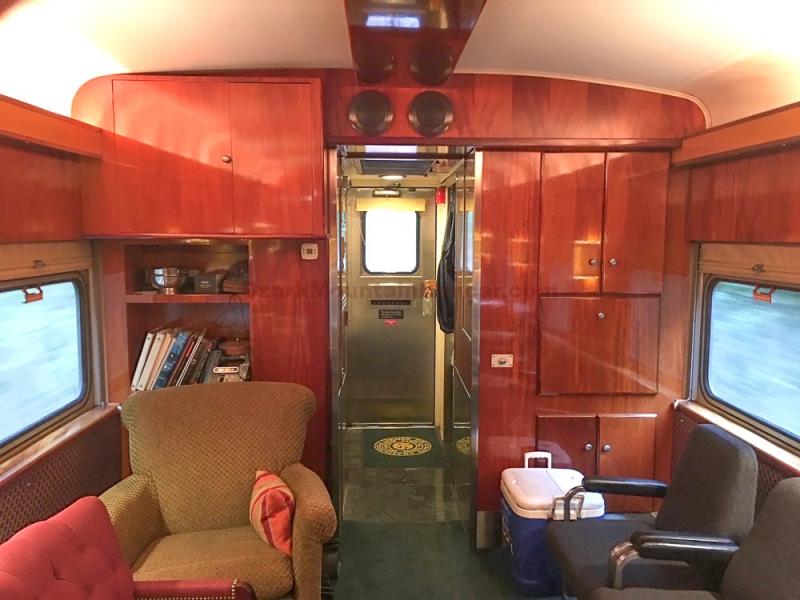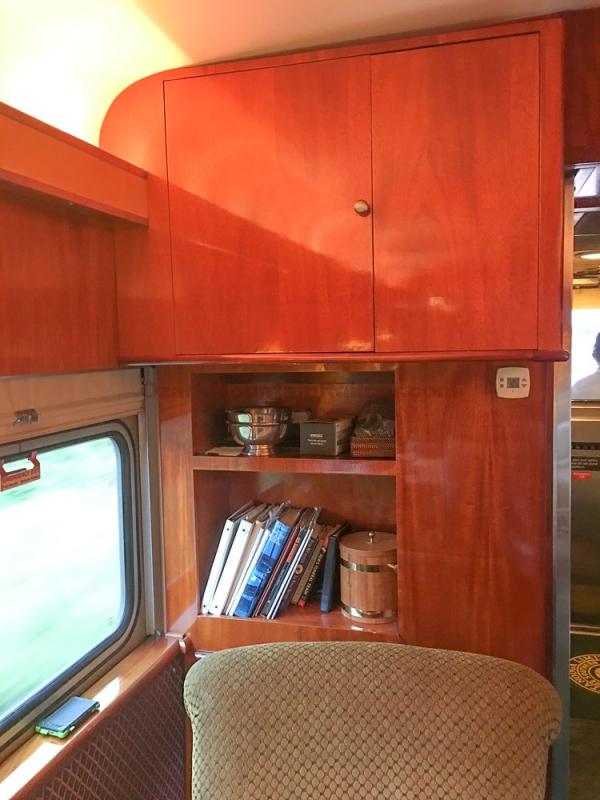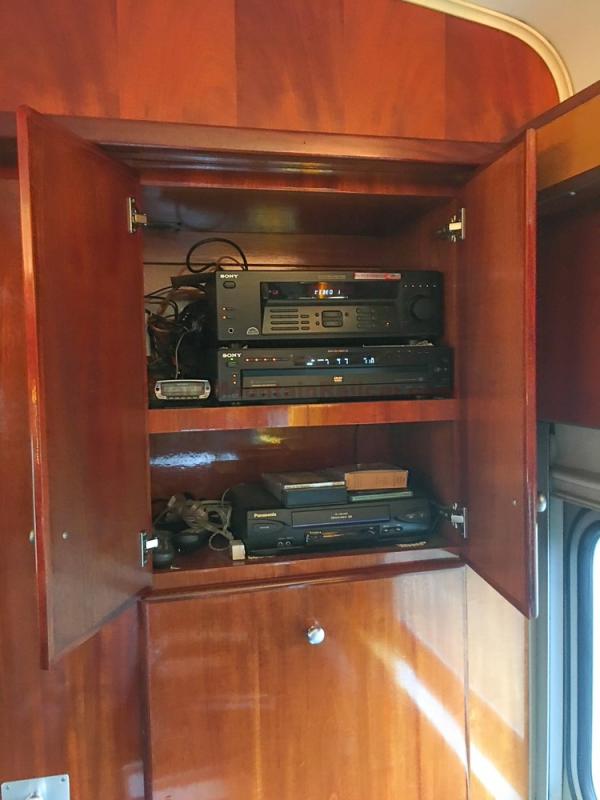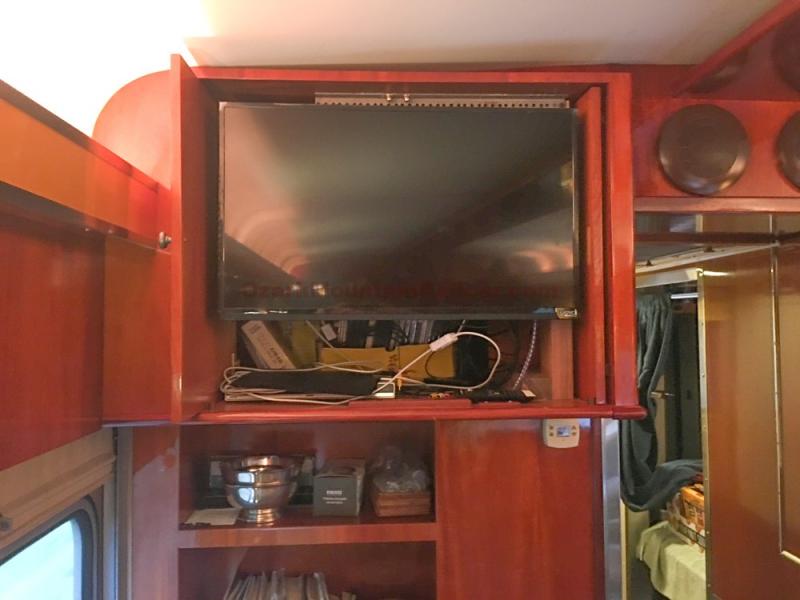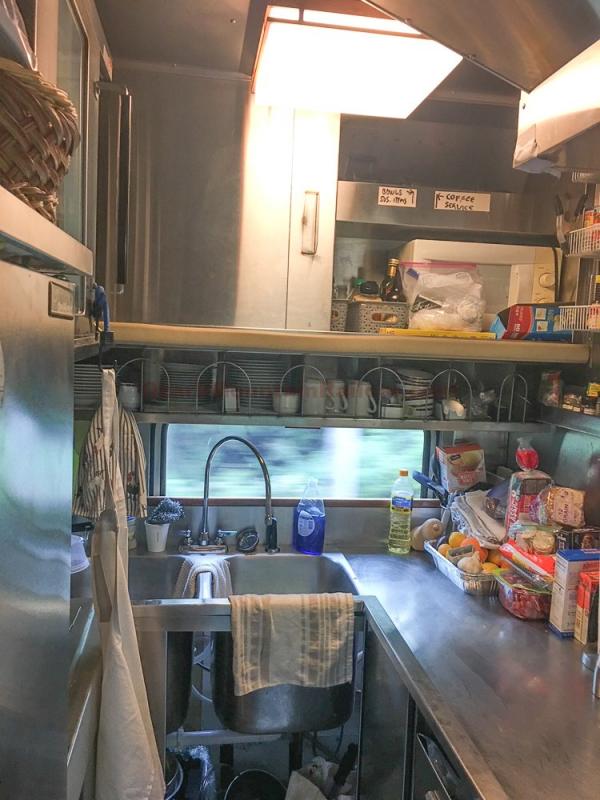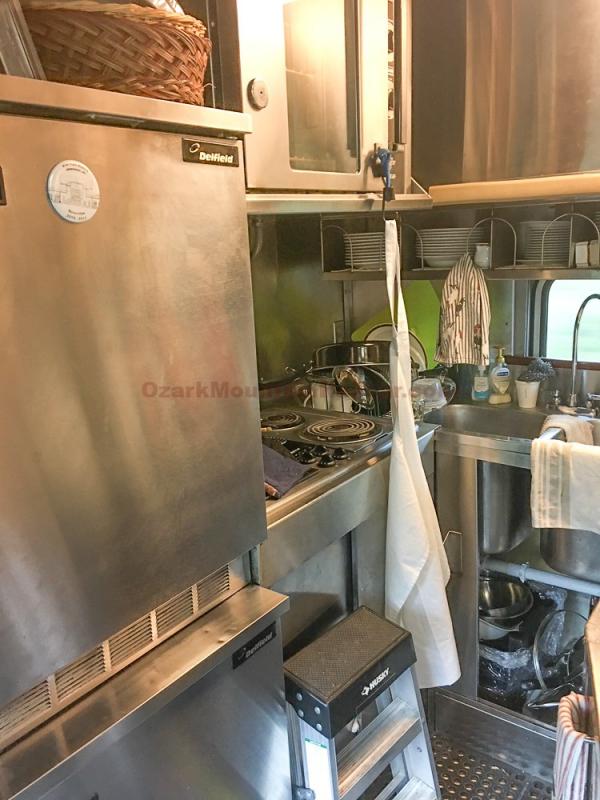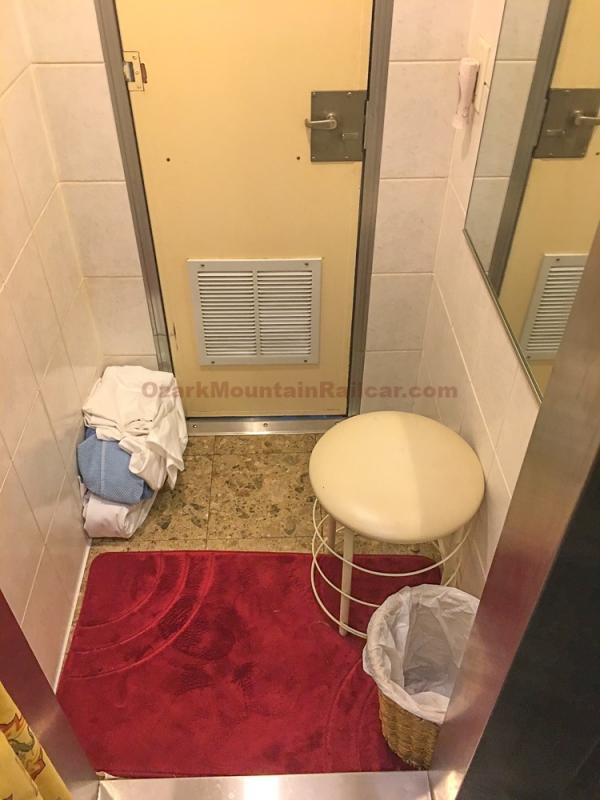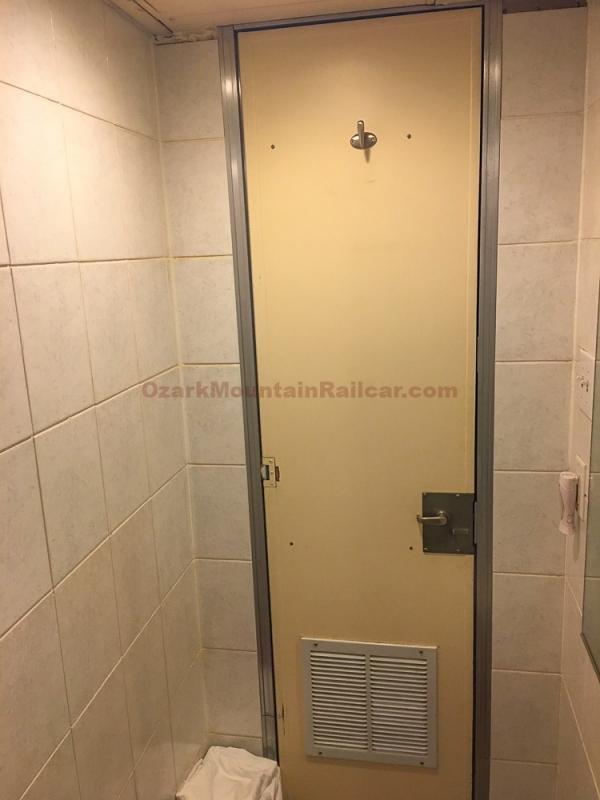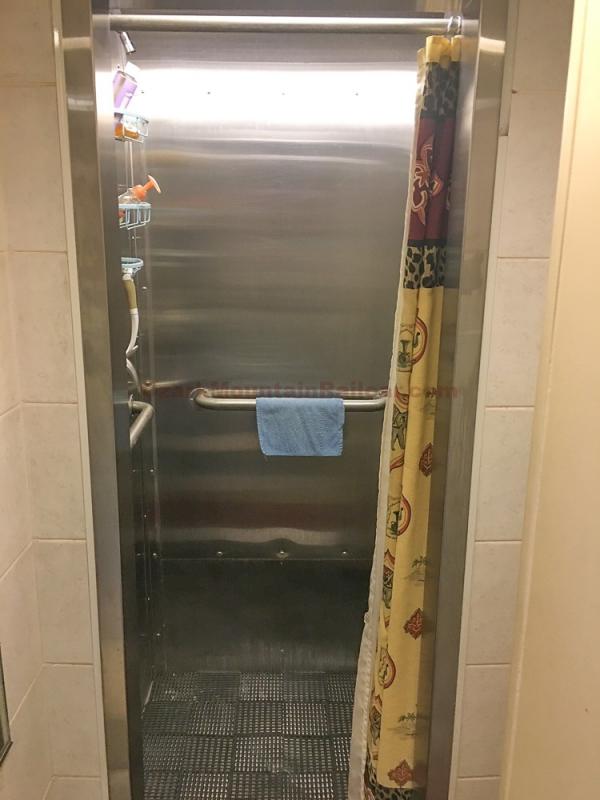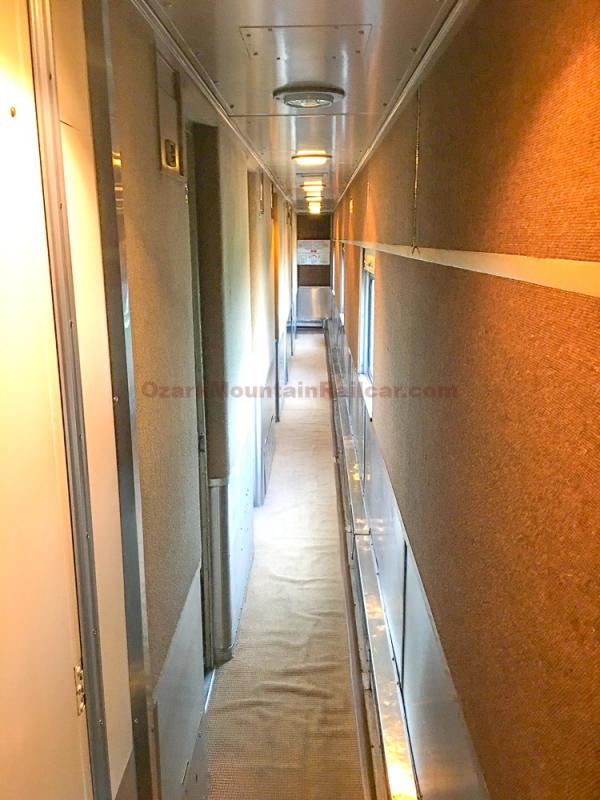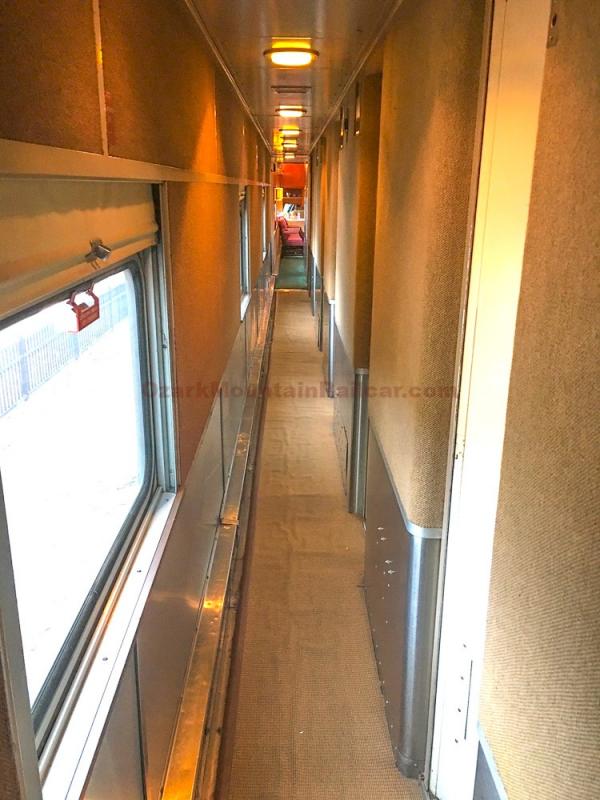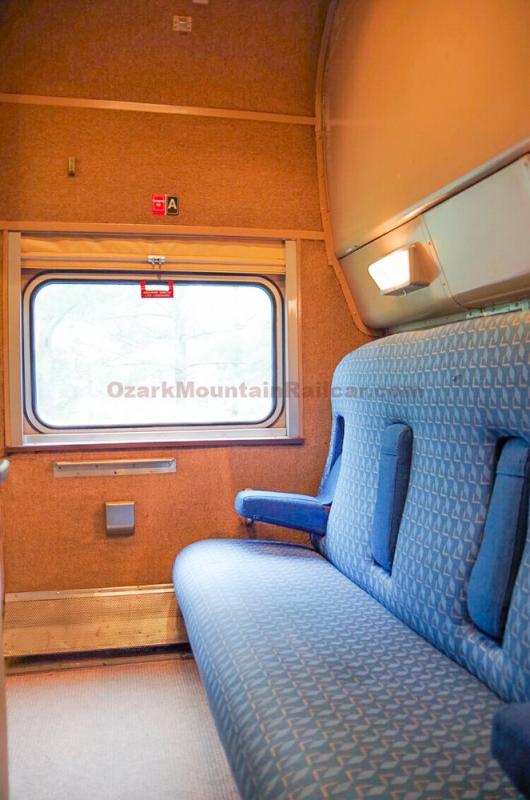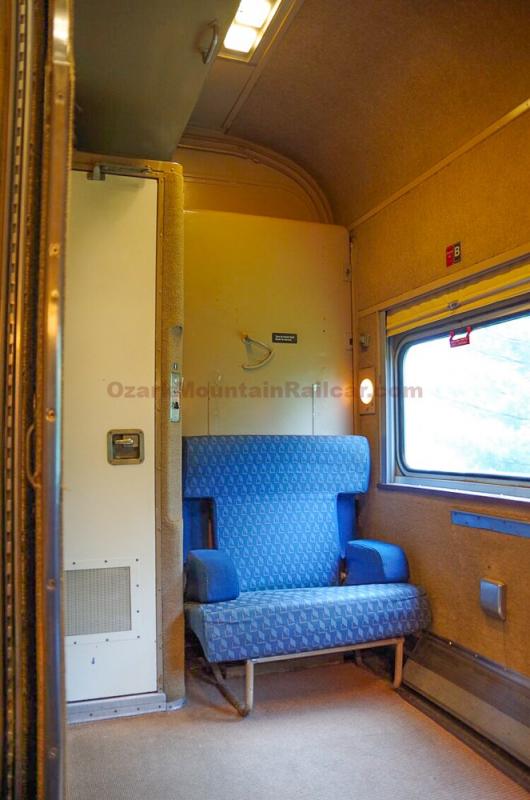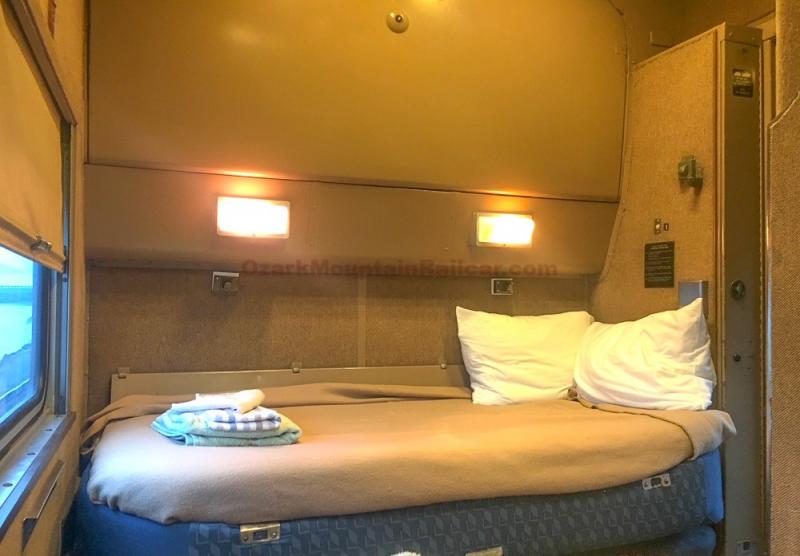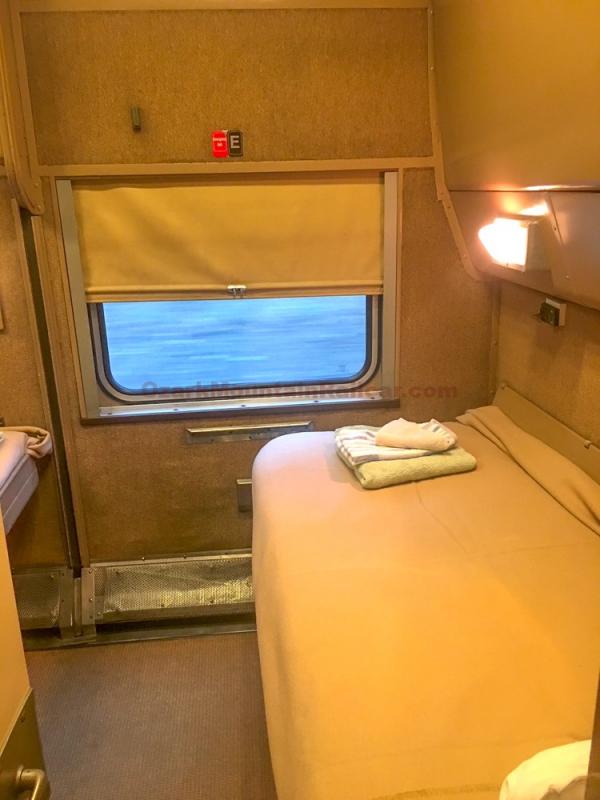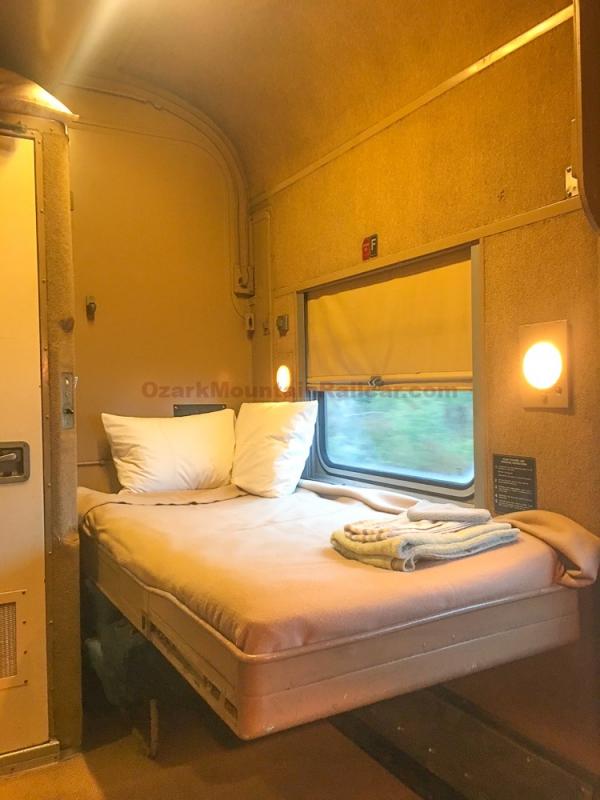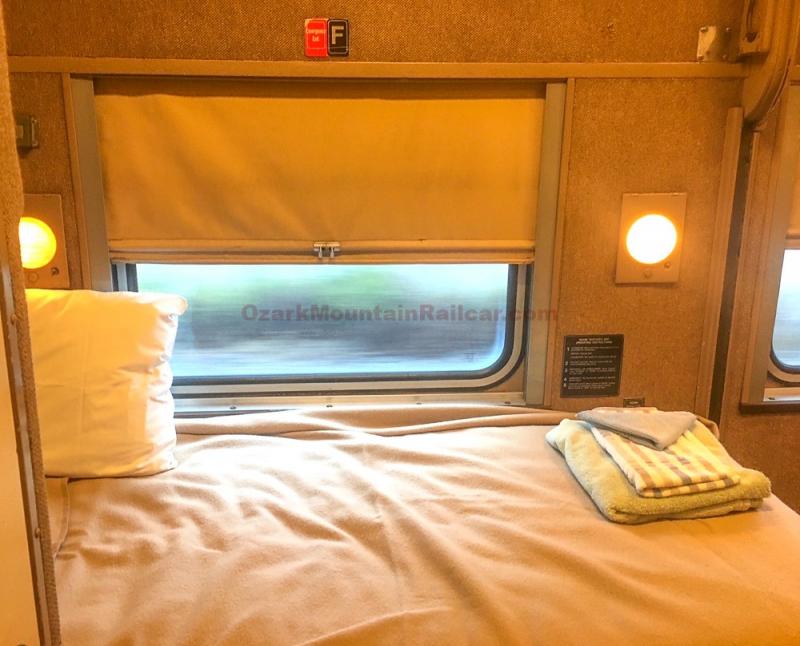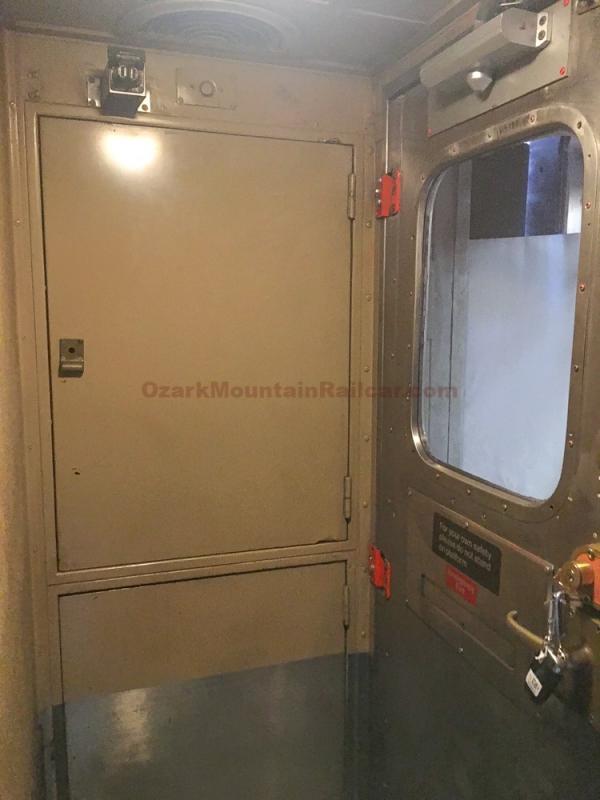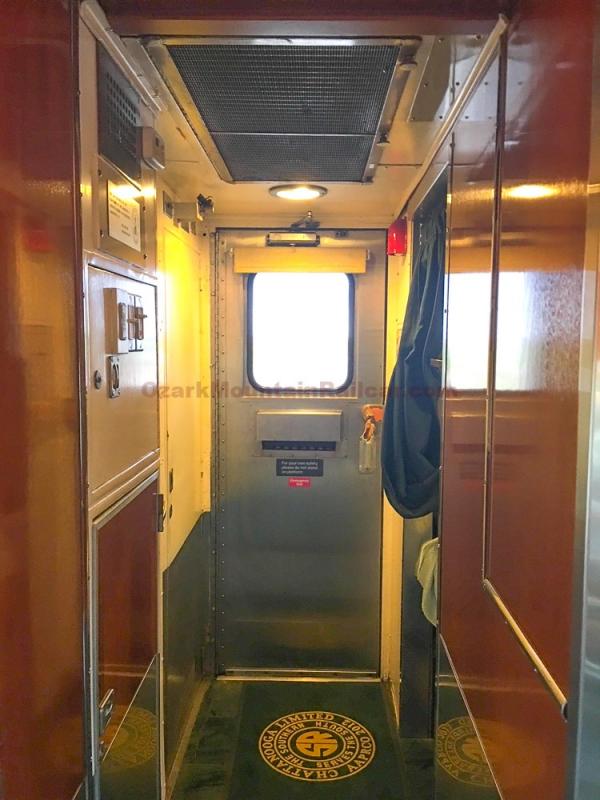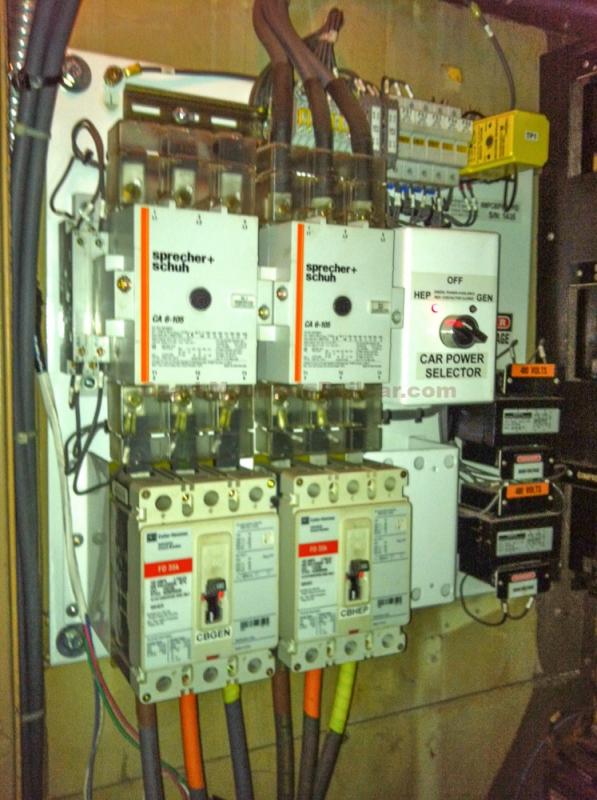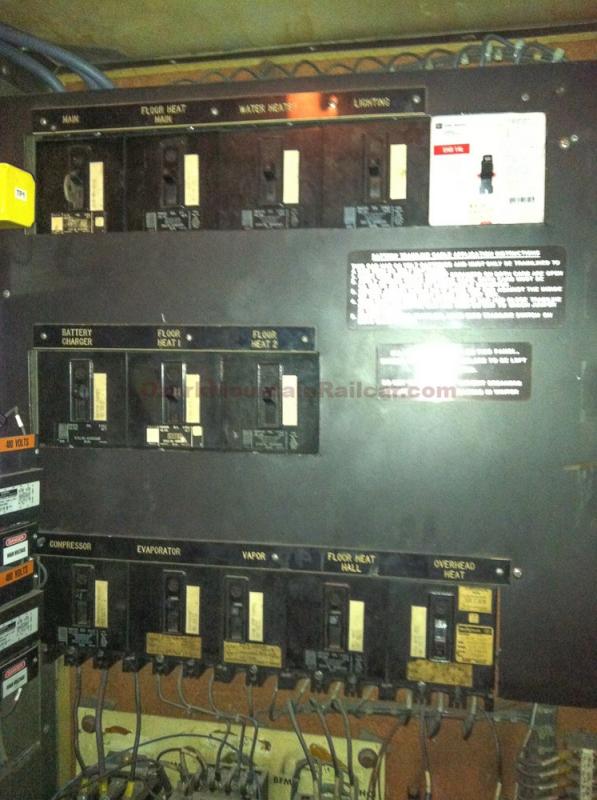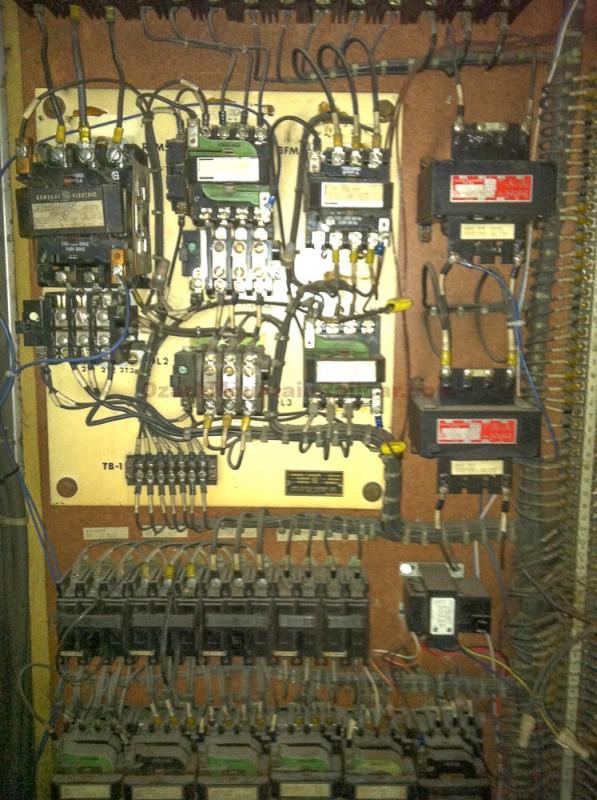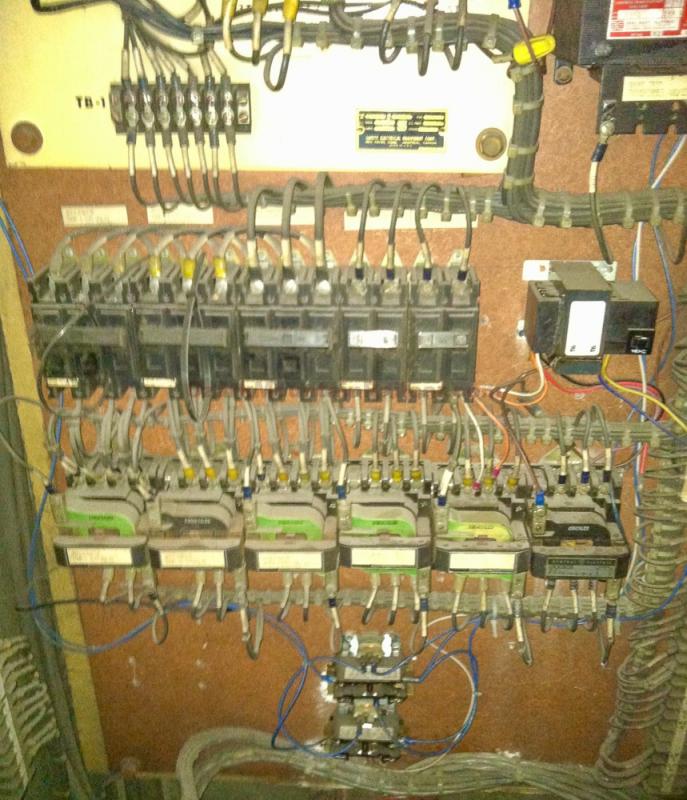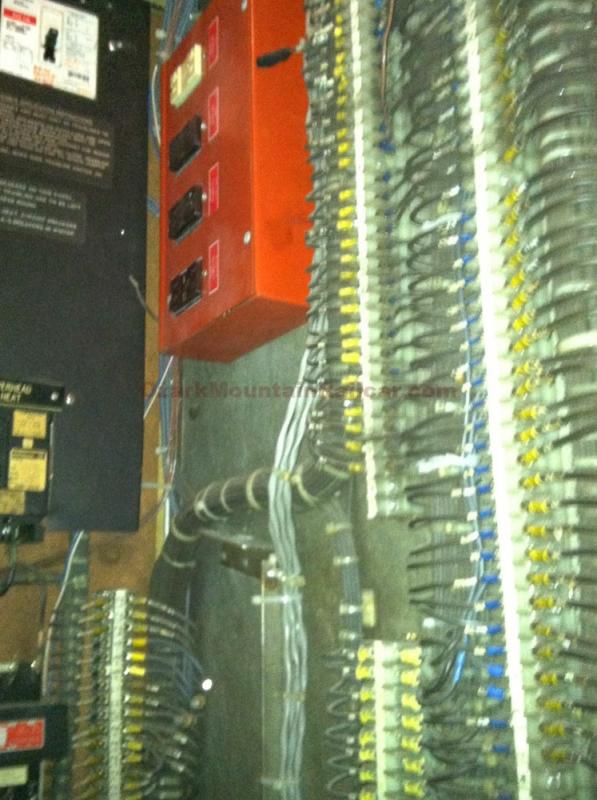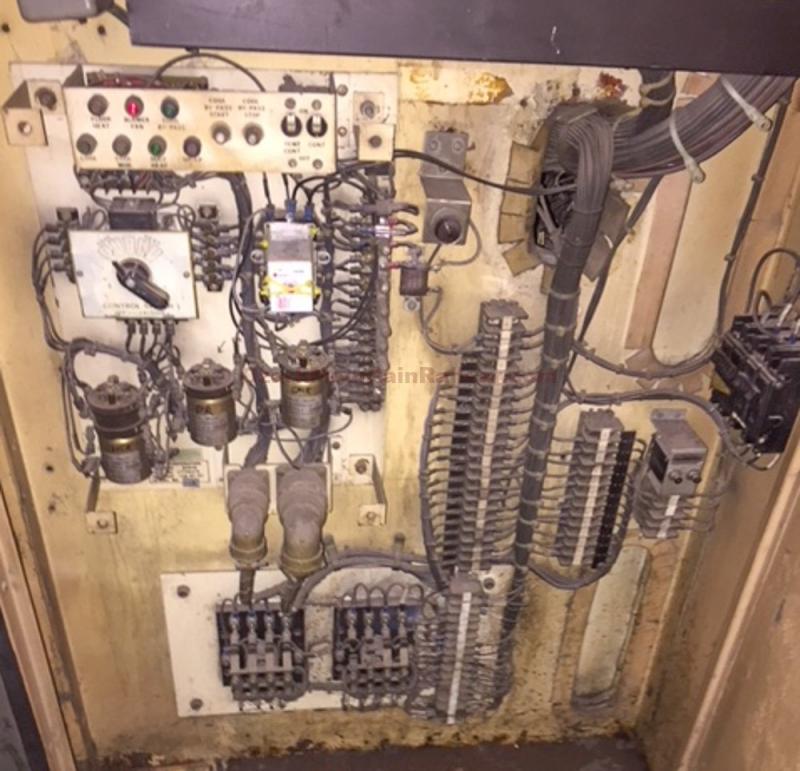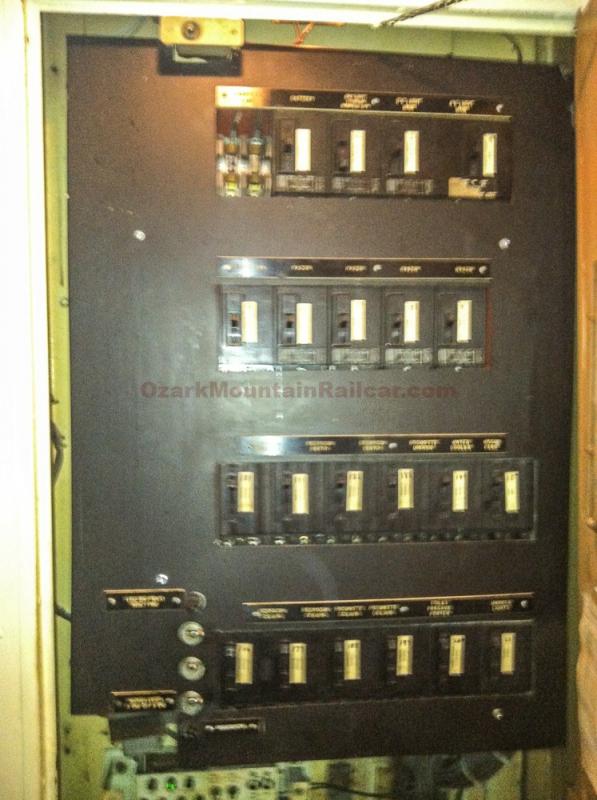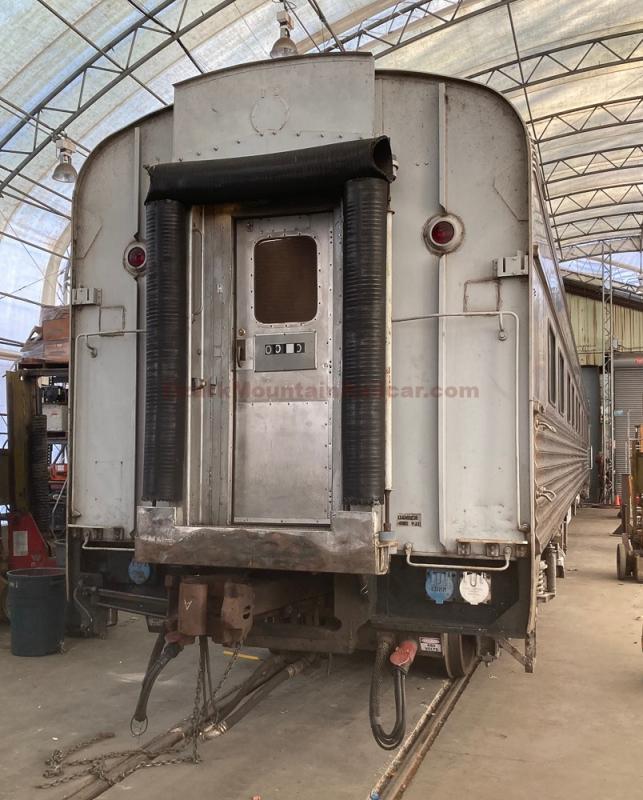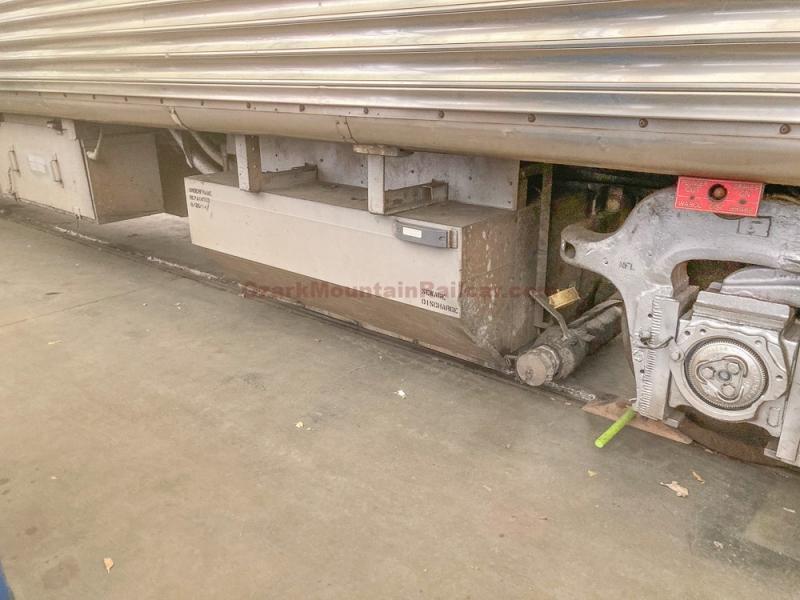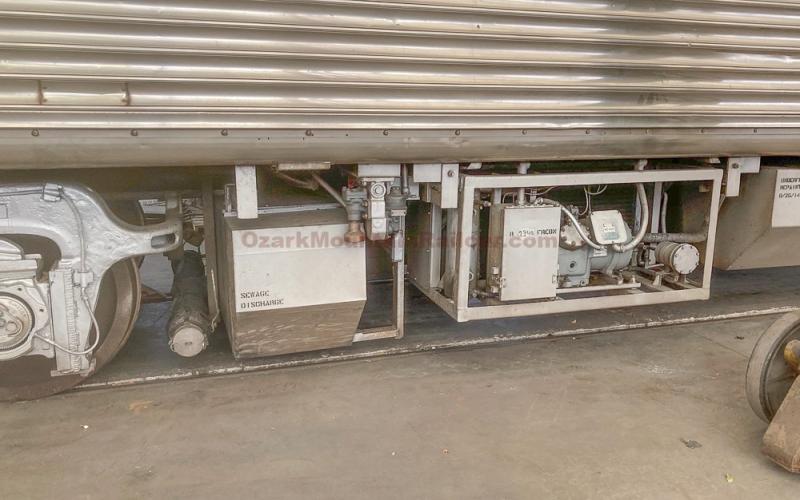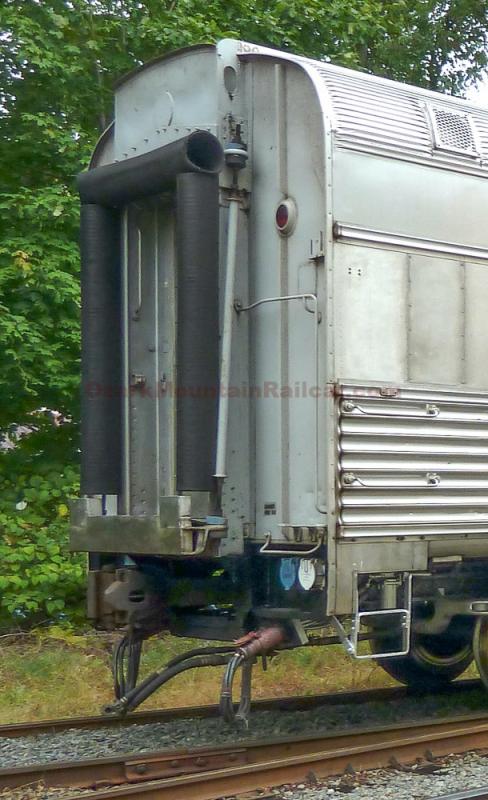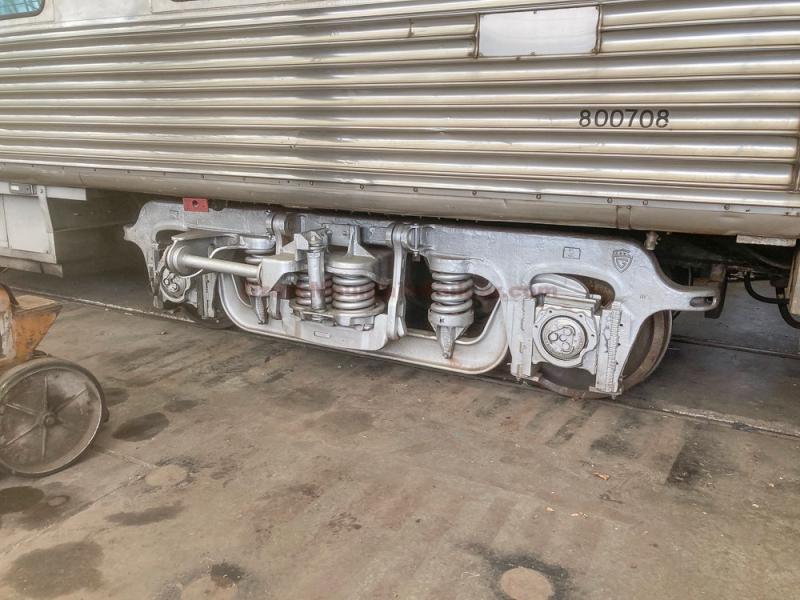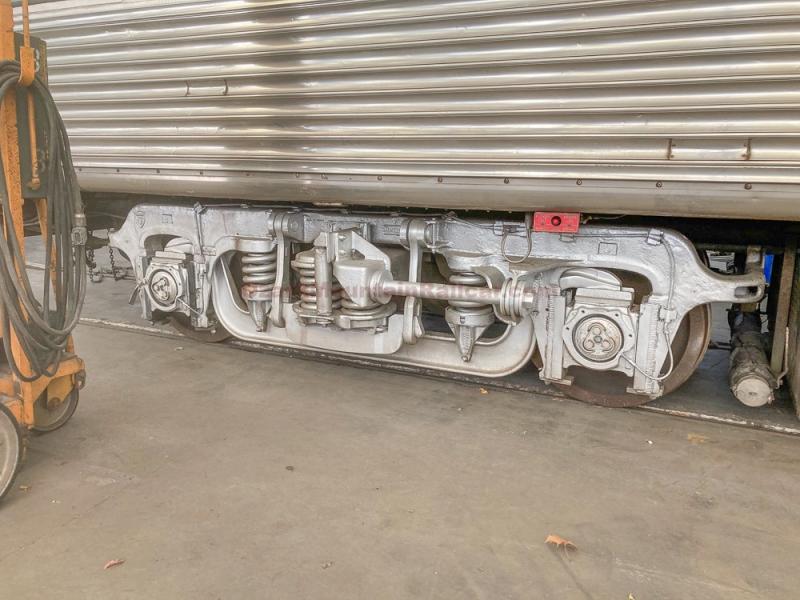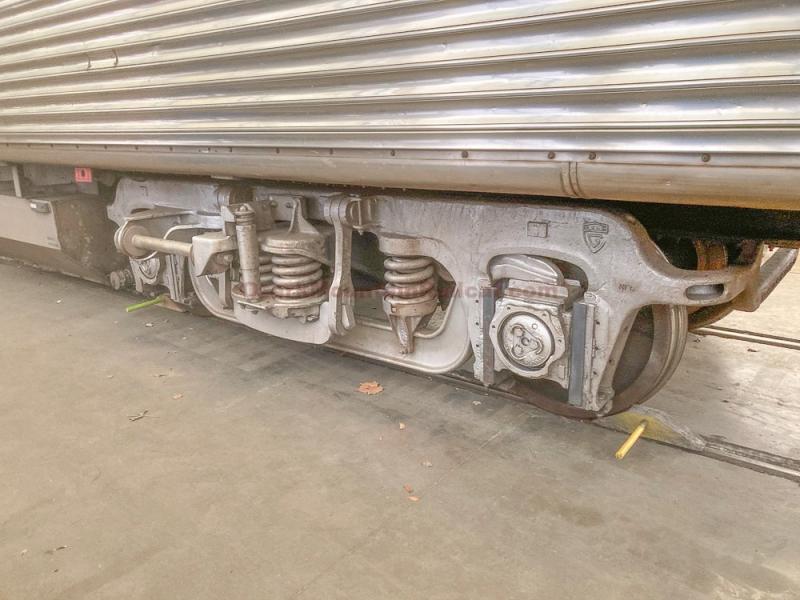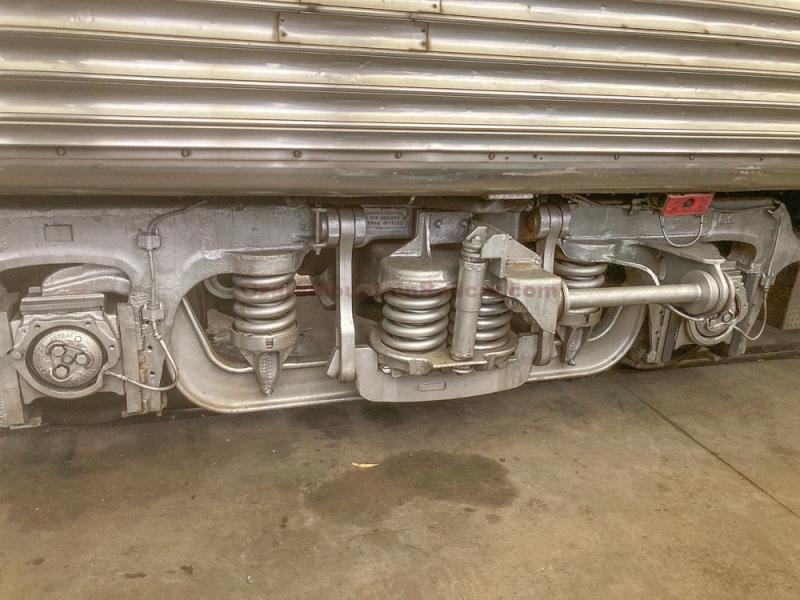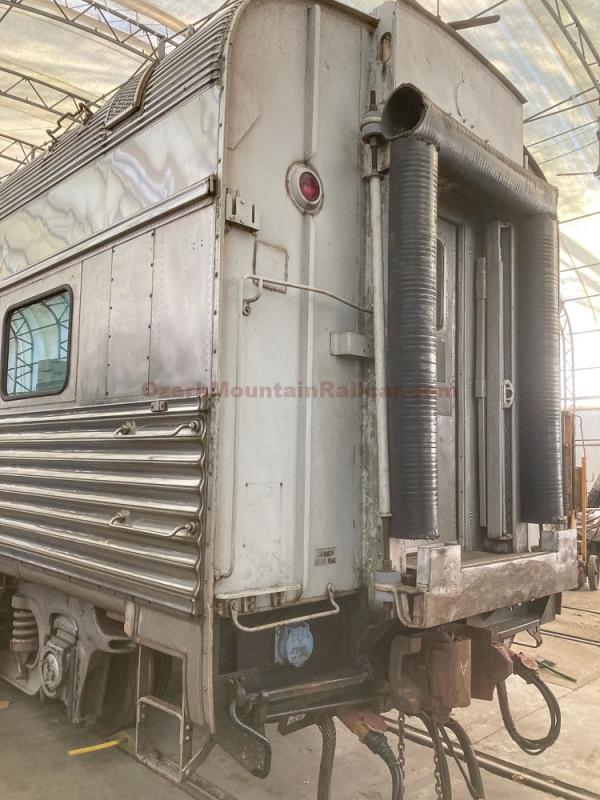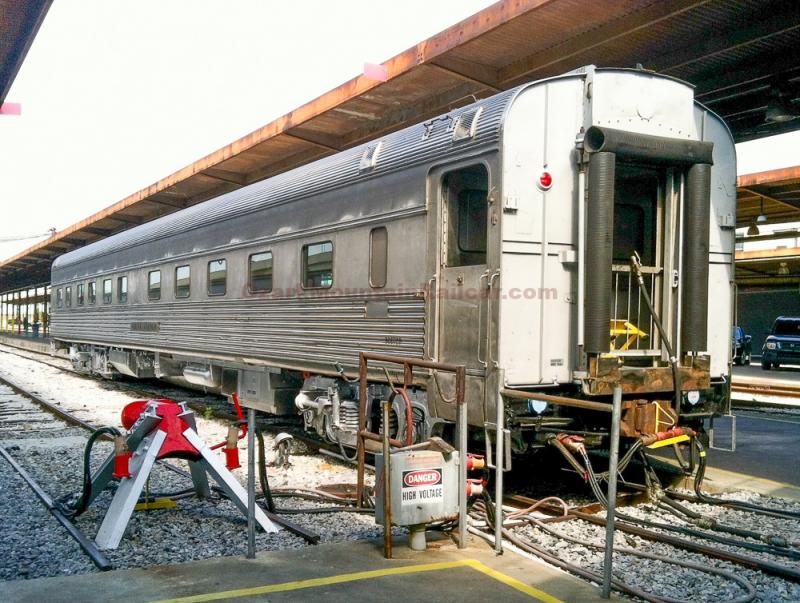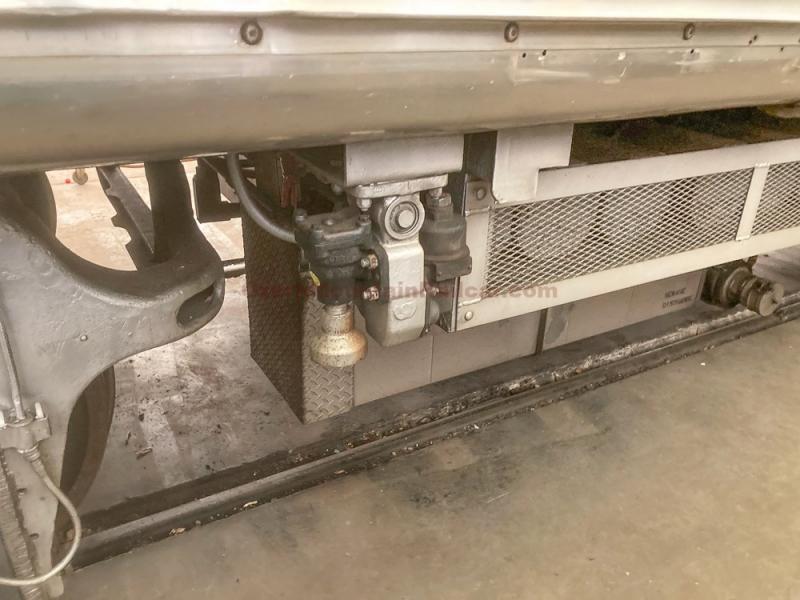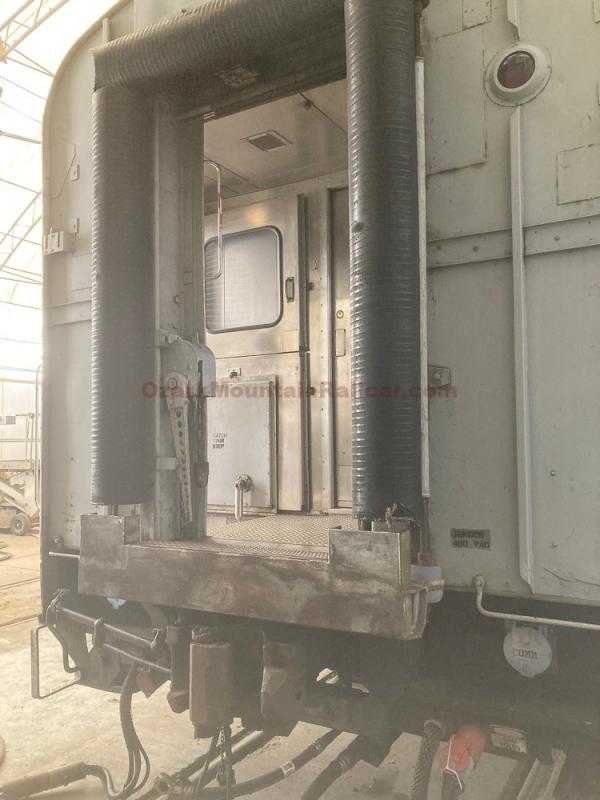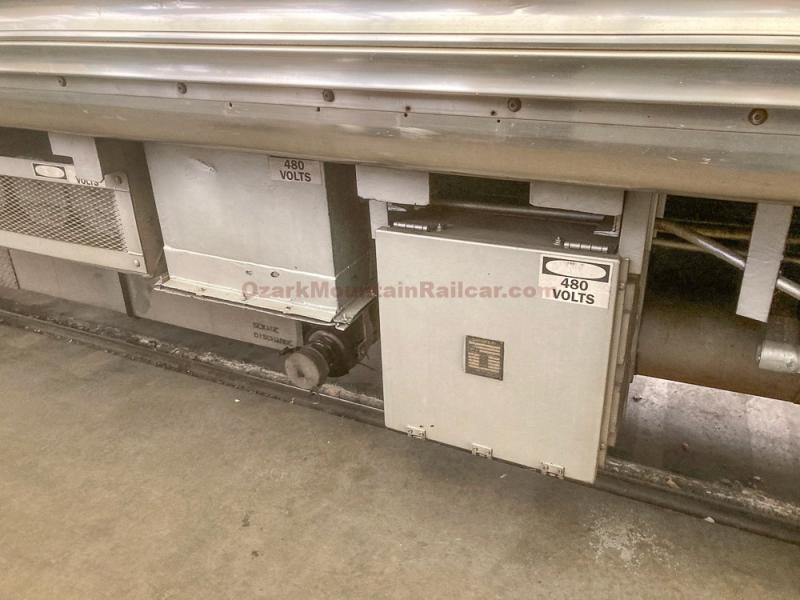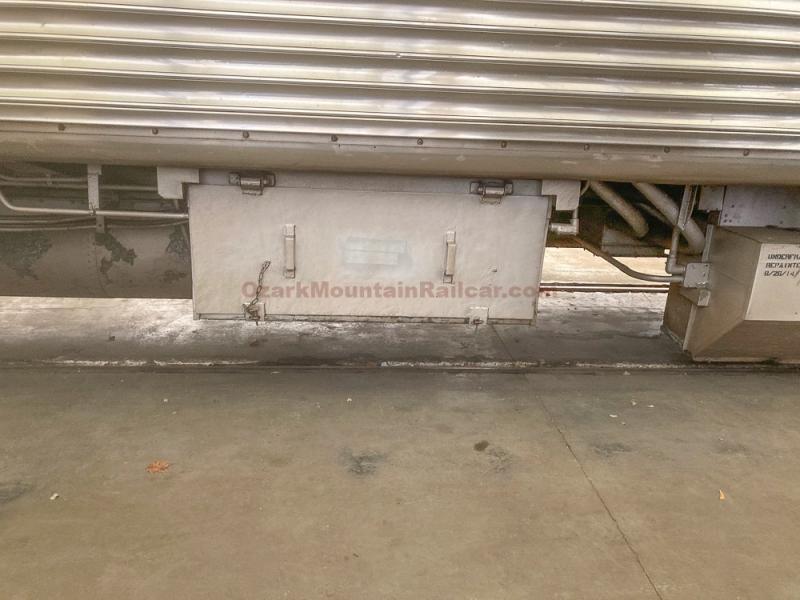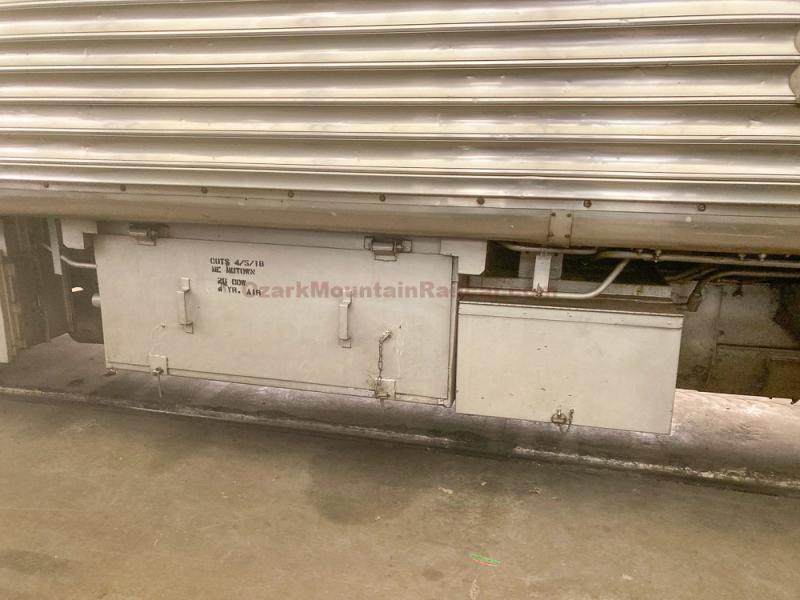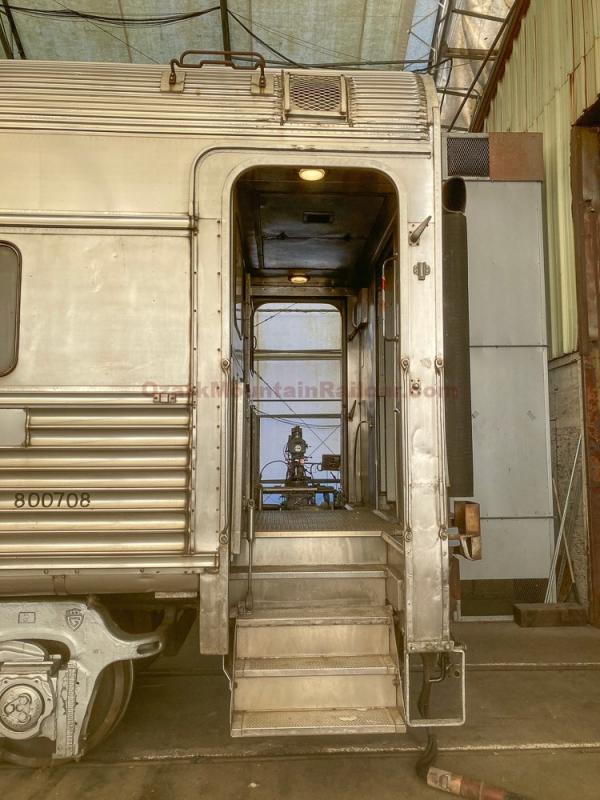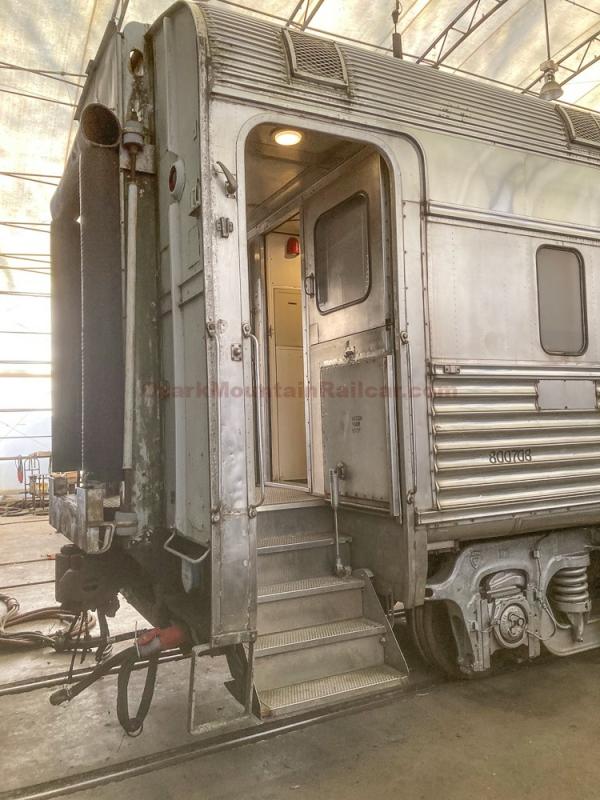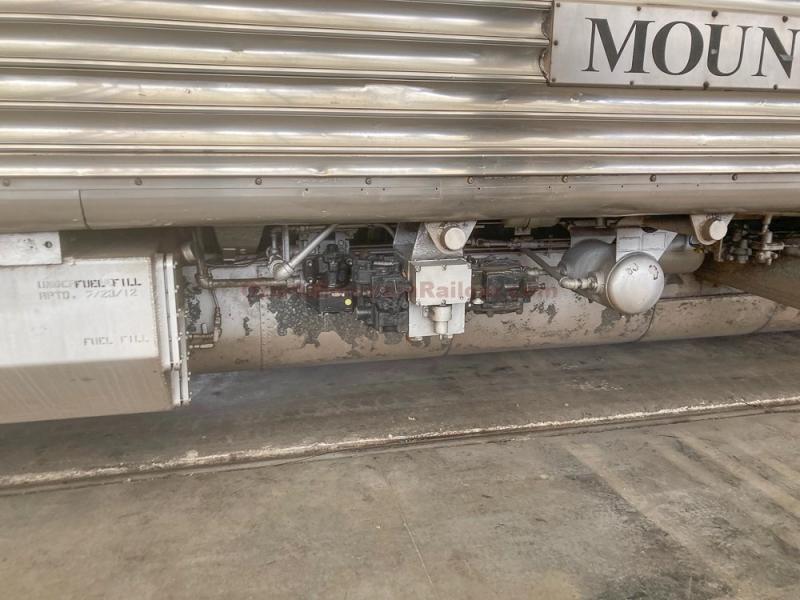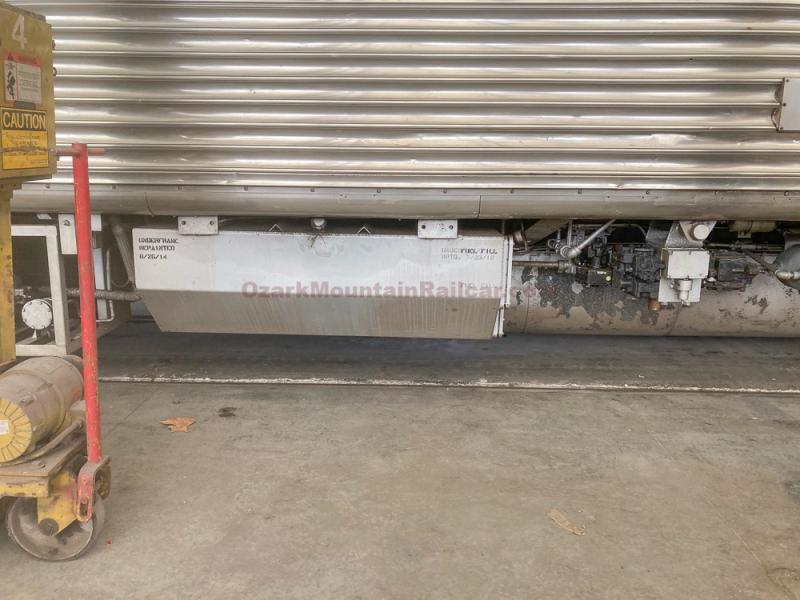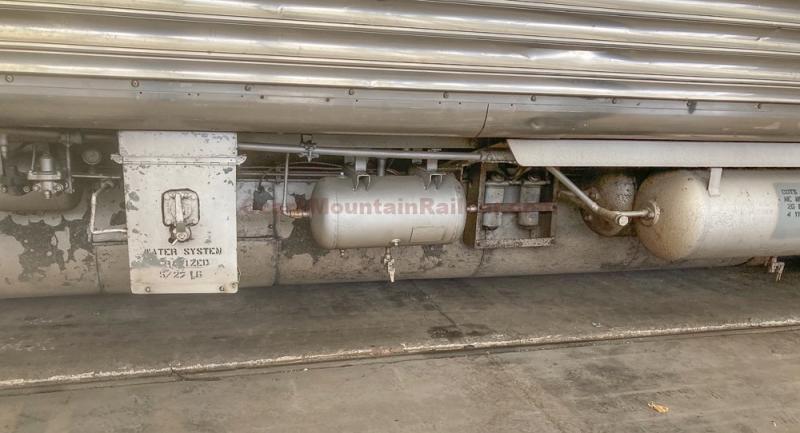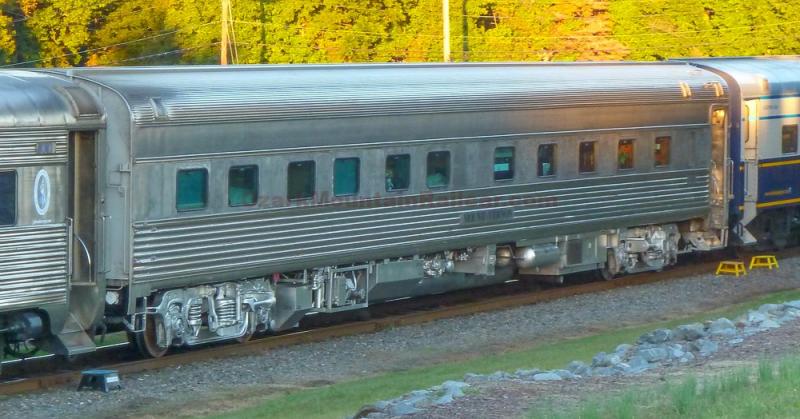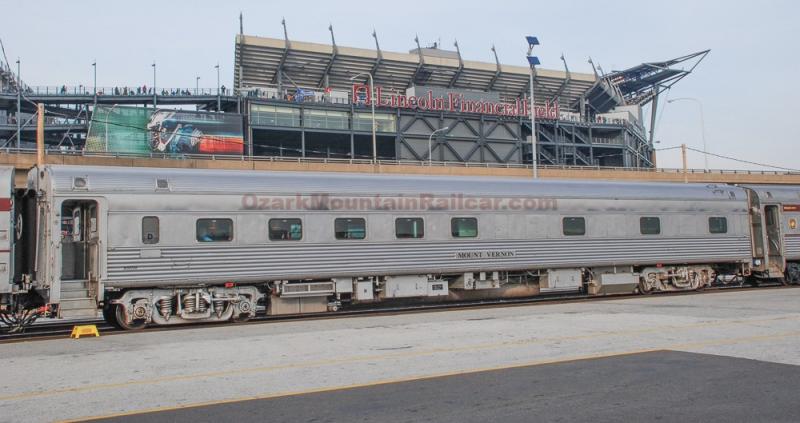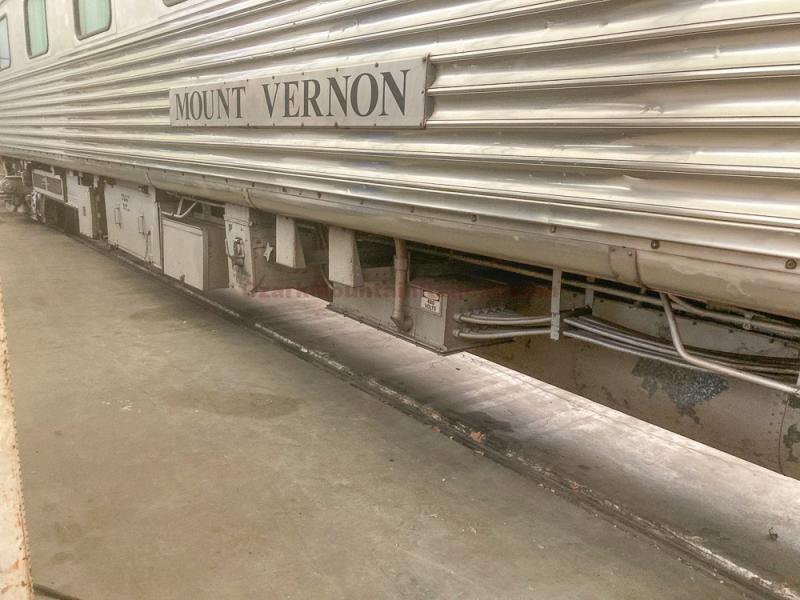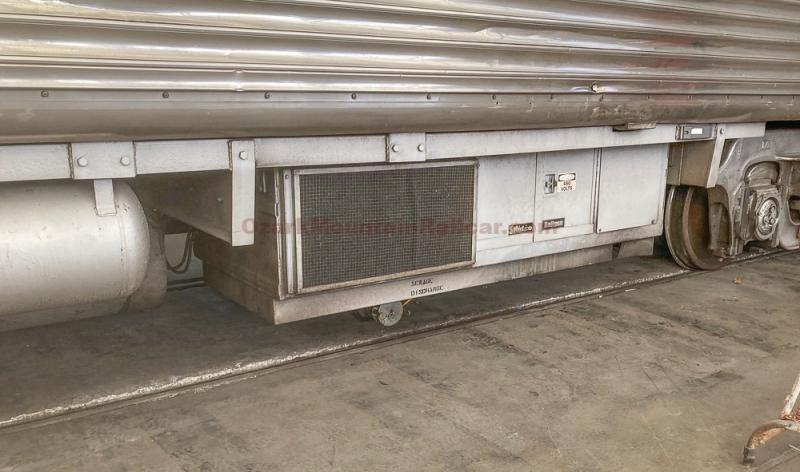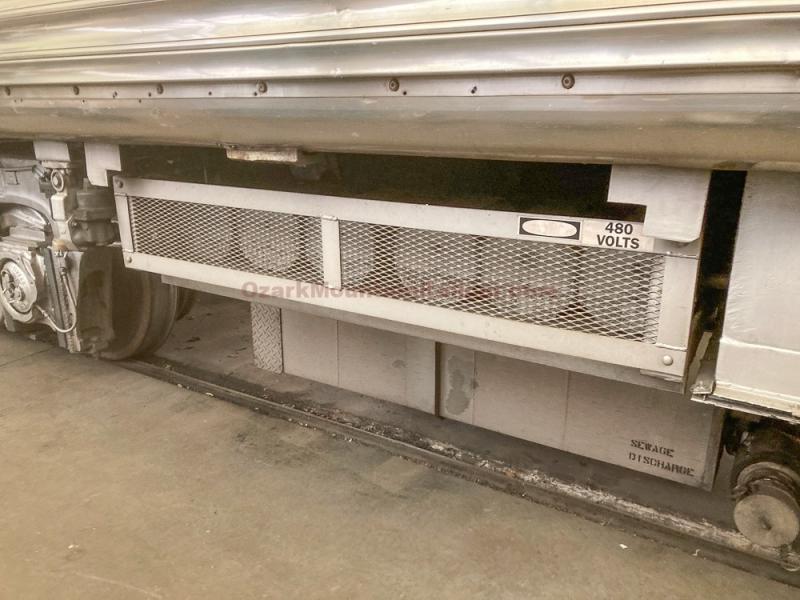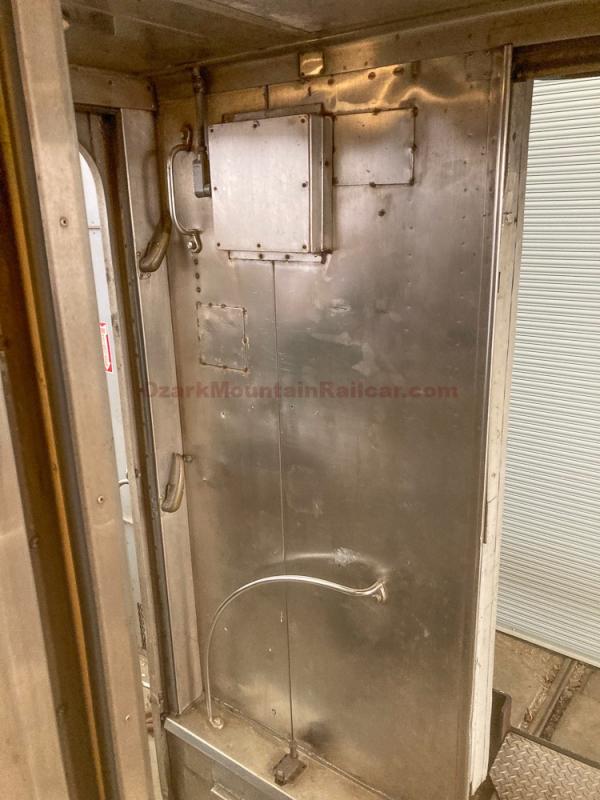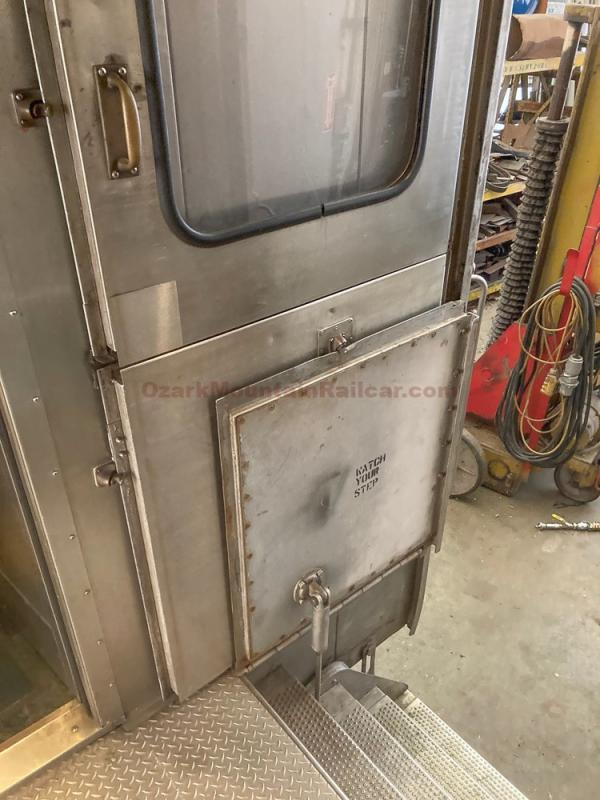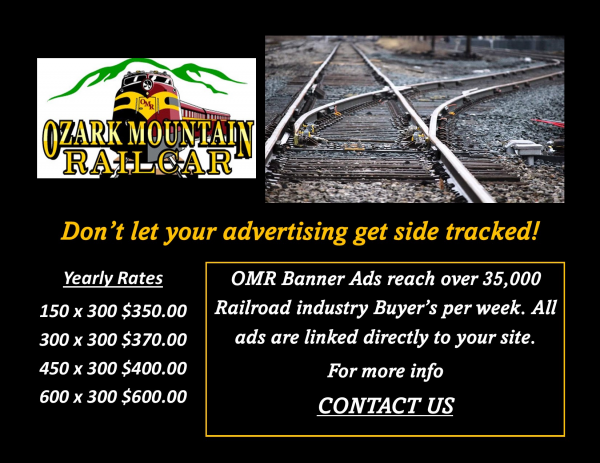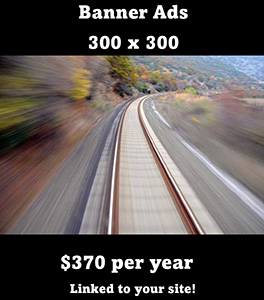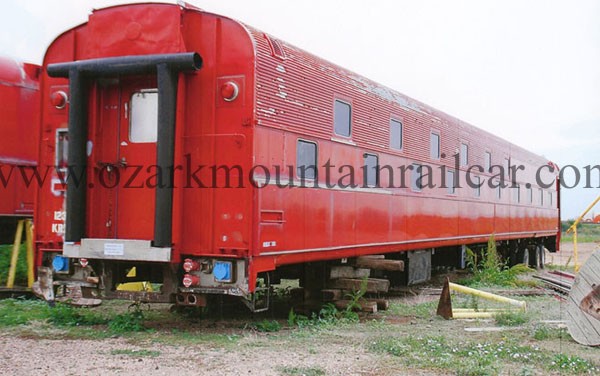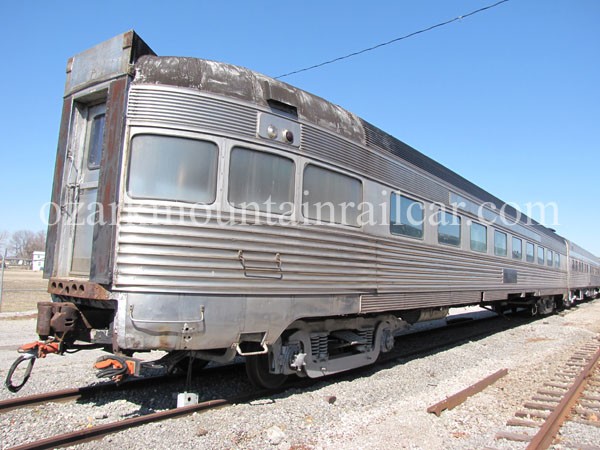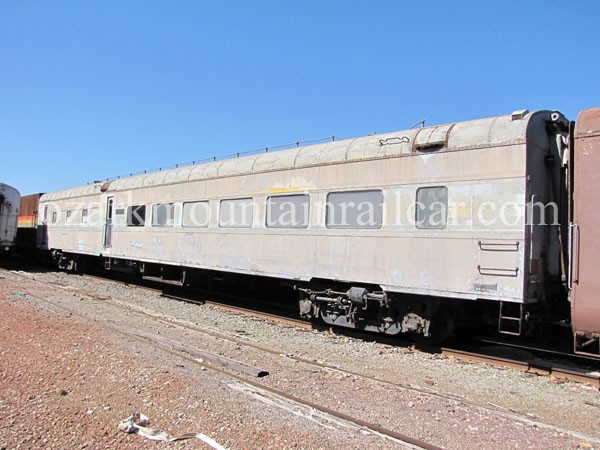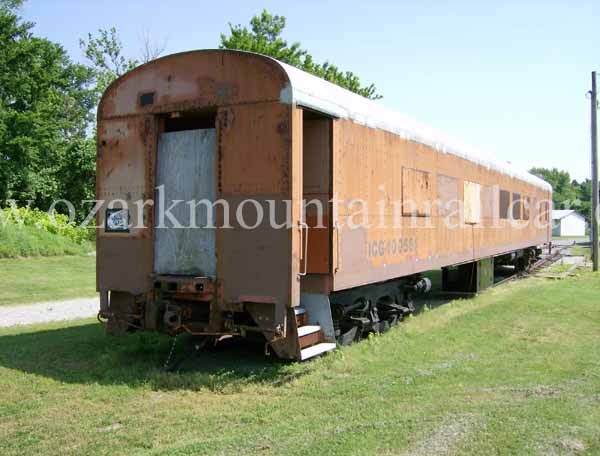
Built by the Budd Company for the Union Pacific railroad as a 10 roomette, 6 double bedroom sleeping car and named Pacific Island. Union Pacific sold the car to Amtrak in 1971 and it was one of the prototypes for Amtrak's Heritage Fleet program. Retired by Amtrak circa 1995 and sold into private ownership in in 1999. The current owners rebuilt the car into a sleeper lounge and certified the car for use on Amtrak. As you walk into the car from the vestibule end, you will find a stunning wood paneled lounge and dining area. Just past the lounge is a full stainless kitchen, stainless shower and 6 double bed rooms that sleeps a total of 12 passengers. Mount Vernon is in operating condition and currently Amtrak certified.
All Amtrak inspections and certifications:
- Amtrak PC-1 "annual" inspection dated 8/08/2021. Good thru 8/08/2022. Price includes a current Amtrak PC-1.
- Amtrak PC-2 "forty year" inspection dated 3/19/2001. Good for the life of the car.
- Amtrak PC-2A "truck rollout" inspection dated 8/08/2021. Good thru 8/08/2031.
- Amtrak PC-7 ultrasonic testing of axles and wheels good for 10 years thru 7/17/2022.
- Air brake system COT&S completed 4/5/2018. 26-CDW air brake system good for 4 years thru 4/5/2022. Price includes a current COT&S.
- Amtrak PC-7 ultrasonic testing of axles and wheels completed 10/07/2022; good for 10 years thru 10/07/2032.
- Air brake system COT&S completed 9/30/2022. 26-CDW air brake system good for 4 years thru 9/30/2026.
Some of the mechanical details include: Amtrak “A” clearance. 110 MPH maximum authorized speed, Stadco 80 KW generator with approx. 2,100 hours (February 2022: Unit removed from car and sent to Stadco Division of Stauffer Diesel for refurbishment and upgrades Stadco 80 KW generator refurbished "like new" and upgraded by Stauffer Diesel in 2022 and a new Stadco digital control system was added), 225 gal fuel tank, local & remote generator controls, Stone-Safety 8 ton condensing unit (R-1344A refrigerant), Evaporator blower motor replaced in 2019 (evaporator cleaned at the same time), 39 KW electric heat (20 KW overhead new in 2019, 19 KW floor), 400 gal potable water tanks, full freeze protection, 2 holding tanks (freeze protected), marble tiled shower/dressing room, six Headhunter marine toilets, emergency windows, emergency lights, marker lights, 27 pin & MU, full head end power, APEE rotating end cap bearings
The Mount Vernon is equipped with a Stainless steel kitchen equipped with Hobart convection oven, Jenn-Air cooktop (2 burners plus griddle and grill modules), Bunn coffee maker, 2 refrigerator/freeze boxes (can be adjusted to use in either role), double deep sink, storage cabinets, spice rack and storage areas. Full set of custom designed china, with stainless cutlery and assorted glassware for beverages.
The car is also equipped with an Entertainment system consisting of satellite radio system, CD/DVD player, VCR, FM/AM radio, stereo receiver, flat screen digital television and video display monitor, with multiple audio speakers.
Q-How much does it cost to ship a passenger car by truck?
A- The costs involved with shipping a passenger car will vary a bit depending on the type of car and the equipment the service provider has and of course the distance it must travel. Normally a passenger car will weigh between 60-85 ton, will be approx. 85' long, ten feet wide and approx. 13-15' high sitting on it's trucks (wheel assemblies). The safest method of shipping will be to lift the car off it's trucks and set one end of the car on the back of a semi truck and the other end of the car on a set of road dollies. So basically the car would be pulled down the highway like a trailer. The trucking company will need to make a second trip to pick up the trucks and deliver them to the site before the truck arrives with the car body. It is recommended that the car be set on a short piece of track since that is how the car structure was designed. You normally can find used railroad ties at landscaping companies and for rail we suggest contacting a local railroad museum, shortline railroad or scrap yard. On an average you can expect to spend a minimum of $10,000-$15,000+. The total price will depend on the trucking company and crane companies in the area. Shipping is the responsibility of the buyer and we are more than happy to discuss the project with any service provider so that fully understand the process.
Q-How much does it cost to ship a passenger car by rail?
A-If a passenger car is capable of being shipped by rail, that does not mean that is the easiest or cheaper method of transport. If the final destination is off live rail then shipping by truck (see above paragraph) will be the best option. This way you know when it will show up and an in what condition it will be in. To ship a car by rail it will need to meet all mechanical and safety standards of the Federal Railroad Administration and the interchanging railroad. In most cases we can recommend a trusted independent inspector who can do an evaluation of the car for you and perform what work needs to be done. On average the car will need to have the air brakes recertified (approx. $5,000-$8,000). And it will need to have UMLER Tags and reporting marks installed on the side of the car (approx. $250.00 - $500.00). If the car is ready to be shipped in freight service (like a box car in a train) you will need to open an account with all railroads involved in the move and get a tariff for moving a passenger on it's own wheels (we can recommend several trusted contractors who can make all the shipping arrangements for you). The railroads charge between $5.00- $15.00 per mile, often the railroads don't go directly from point A to point B so you will need to pay the total amount of mileage the car will travel to get to the final destination. It is recommend that you have the car insured before shipment ( we can recommend several carriers who specialize insuring railroad equipment).
Q-How much does it cost to ship a passenger car by railroad flat car?
A- Occasionally a passenger car can't be shipped by rail due to it's physical attributes or shipping by truck is not the best option. You can ship a car loaded on a flat car, it will need to be secured to the flat car per American Association of Railroads tie down specifications. The tariff often can be cheaper than moving a car on it's own wheels, but you will still need to pay crane costs at origin and destination and you will need to have an active siding for the car to be delivered to. Shipping by flatcar will start at approximately $10,000 and will be based on origin and destination crane cost and the rail tariff and any car rental costs.
Q-How much does it cost to ship a car on Amtrak?
A-To ship a car on Amtrak the car will need to be Amtrak certified and have a current yearly PC-1 inspection. You can view the current Amtrak Tariffs and Terminal Charges with the link below.
https://www.amtrak.com/privately-owned-rail-cars
